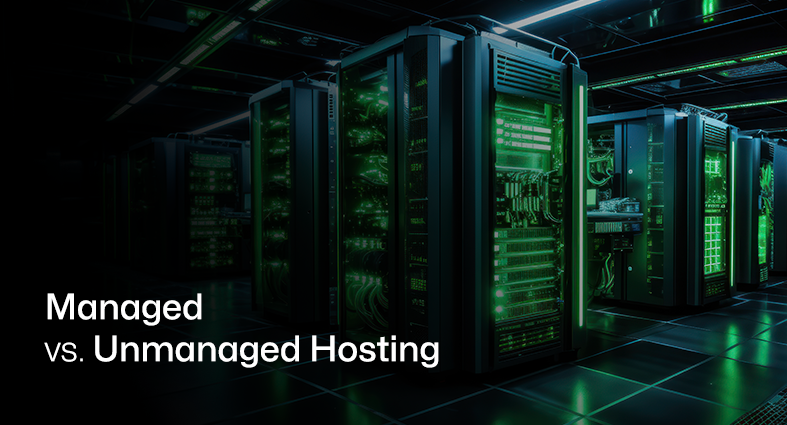The speed at which your website loads and its overall uptime significantly impact user experience, search engine rankings, and ultimately, the success of your online endeavors. Web hosting services play a pivotal role in determining the performance and speed of your website. In this comprehensive guide, we will explore the various aspects of web hosting services. Additionally, we unravel the multifaceted factors influencing website speed and reliability, offering invaluable insights into how to measure, optimize, and maintain a website’s speed, ensuring a seamless user experience and a competitive online presence.
Contents
Role of Web Hosting Services in Website Performance
In the context of website performance, web hosting services dictate how swiftly your website loads when someone clicks on it, how it handles traffic spikes, and even how secure it is against cyber threats. Understanding the different types of web hosting services is fundamental to making informed decisions about your website’s performance. Four primary types of web hosting services dominate the market: shared hosting, VPS (Virtual Private Server) hosting, dedicated hosting, and cloud hosting. Each of these hosting types comes with its unique set of features and advantages.
Shared hosting is a widely embraced hosting solution, primarily appreciated for its cost-effectiveness. In shared hosting environments, multiple websites coexist on the same server, sharing server resources such as CPU, RAM, and storage. This sharing model leads to several notable benefits. Firstly, shared hosting is budget-friendly, making it an excellent choice for small businesses, personal blogs, and startups looking to establish an online presence without breaking the bank. Additionally, the hosting provider typically handles server maintenance and management tasks, alleviating the technical burden for website owners.
VPS Hosting
Virtual Private Server (VPS) hosting offers a compelling compromise between shared and dedicated hosting. Each VPS operates independently, with its dedicated allocation of server resources. It provides greater performance stability, as the resources allocated to a VPS are dedicated to that VPS alone, eliminating the resource contention issue found in shared hosting. Also, VPS users often have more control over server configurations, allowing for custom software installations and tailored performance optimizations.
Dedicated Hosting
Dedicated hosting represents the pinnacle of hosting solutions in terms of performance and resource exclusivity. Websites that demand top-notch performance, stringent security measures, and the assurance of exclusive access to server resources often opt for dedicated hosting. With dedicated hosting, the entire server is reserved for a single website or client. The advantages of dedicated hosting are substantial. Websites hosted on dedicated servers experience unparalleled performance since they have the entire server’s resources at their disposal.
Cloud Hosting
Cloud hosting is known for its ability to efficiently manage varying levels of website traffic by allocating resources on demand. This means that during traffic spikes, additional server resources are provisioned automatically to maintain optimal website performance. Cloud hosting is especially appealing to businesses and websites that experience fluctuating traffic patterns or expect rapid growth. The ability to scale resources dynamically ensures that websites remain responsive even during unexpected traffic surges, such as during product launches or marketing campaigns. Additionally, cloud hosting offers redundancy and high availability, as data is often mirrored across multiple servers and data centers, minimizing the risk of downtime due to hardware failures.
Factors Influencing Website Performance
To achieve optimal website performance, it is essential to delve into the intricate web of factors that contribute to a site’s speed and uptime. These critical elements form the backbone of a seamless online experience, and understanding their significance is paramount for website owners and administrators.
Server Hardware and Resources
One of the foundational pillars of website performance lies in the server hardware and resources that power it. These hardware components, including the CPU, RAM, and storage, collectively shape a server’s ability to handle incoming requests and deliver content to users. A powerful CPU ensures that data processing tasks are executed swiftly, while ample RAM allows for the efficient storage and retrieval of frequently accessed data. Adequate storage capacity ensures that your website’s content, including images, videos, and databases, can be stored and delivered without bottlenecks. Moreover, the choice of server hardware directly impacts the loading times of your web pages. A well-configured server with sufficient resources can significantly reduce page load times, making for a more responsive and user-friendly experience. It also allows your website to handle a higher number of concurrent users without performance degradation.
Data Center Location and Server Proximity
The physical location of the data center housing your server is another critical determinant of website performance. This factor ties into the concept of server proximity, which refers to the geographical distance between the server and the end-user devices. The principle behind server proximity is straightforward: the closer the server is to the user, the faster the data can travel between them. Low latency is crucial for delivering a seamless user experience, particularly for interactive and real-time applications. Additionally, proximity to your target audience plays a pivotal role. If your website caters to a specific geographical region, hosting it in a data center near that region can significantly enhance performance. Users in the same geographic area will experience faster load times and smoother interactions with your site.
Website Traffic and Scalability
The volume of traffic your website receives and its ability to scale efficiently are paramount considerations for website performance. Websites must be prepared to handle fluctuations in traffic, including sudden spikes. Unexpected surges in traffic, often driven by viral content, marketing campaigns, or external events, can strain server resources and lead to performance issues if not properly managed. This is where scalability comes into play. Scalability refers to a website’s ability to adapt to changing demands. Cloud hosting, in particular, excels in this regard. Cloud infrastructure allows for the automatic allocation of additional resources when traffic spikes occur, ensuring that your site remains responsive and accessible even during peak usage. Scalability is a proactive approach to maintaining website performance, ensuring that it can grow with your audience and business needs.
Metrics for Assessing Website Speed
Website speed is a critical factor that can make or break the user experience, affecting everything from bounce rates to search engine rankings. To comprehensively evaluate and improve website speed, it’s essential to consider various key metrics. In this section, we will delve into these metrics, explaining their significance and how they impact the overall performance of a website.
Page Load Time
Page load time measures the time it takes for a web page to fully display in a user’s browser. A faster page load time equates to a better user experience, as visitors can access the desired content quickly. Moreover, search engines like Google consider page load time as a ranking factor. Websites that load faster tend to rank higher in search results, which can boost organic traffic.
Time to First Byte (TTFB)
TTFB measures the time it takes for a user’s browser to receive the first byte of data from the server. A fast TTFB is essential for quick page rendering. A slow TTFB can result in delayed page load times, frustrating users and potentially harming your website’s search engine ranking. Factors affecting TTFB include server performance, network latency, and the efficiency of server-side processing.
Render Time
Render time evaluates how long it takes for a web page to become interactive and responsive. A shorter render time is crucial for ensuring that visitors can engage with your site’s features, such as forms and buttons, without delays. Slow render times can lead to a poor user experience, impacting user engagement and potentially driving visitors away. Factors affecting render time include client-side processing, JavaScript execution, and the complexity of web page design.
Content Delivery Network (CDN)
Implementing a CDN can significantly enhance website speed, particularly for global audiences. CDNs distribute your website’s content across multiple servers worldwide, reducing latency. This distribution reduces the distance data must travel, reducing latency and speeding up content delivery. As a result, users from different parts of the world experience faster load times, improved page responsiveness, and a smoother browsing experience. CDNs are especially valuable for websites that rely on large media files or serve content to a diverse international audience.
Optimizing Your Website’s Performance
Now that we’ve covered the factors influencing website performance and how to measure it, let’s explore practical steps you can take to optimize your website’s speed and enhance user experiences. From meticulous code refinement and efficient content delivery to leveraging browser caching and compressing images, this segment navigates through the array of techniques that empower you to fine-tune your website’s performance, ensuring that every visitor is greeted with swiftness and seamless interaction.
Choosing the Right Web Hosting Plan
One of the initial decisions you’ll face when optimizing website performance is selecting the right web hosting plan. The hosting plan you choose should align with your website’s needs, ensuring that you have adequate resources to support your content and traffic volume. Evaluate your website’s resource requirements, including CPU, RAM, and storage. Choose a hosting plan that provides sufficient resources to accommodate your website’s demands without overloading the server. As your website grows, consider upgrading to a higher-tier hosting plan that offers more server resources and better performance. This scalability ensures that your site can handle increased traffic and maintain speed during growth phases. Look for hosting providers that offer scalability options, such as the ability to increase resources or switch to a more robust hosting plan when needed. Scalable hosting solutions ensure flexibility as your website evolves.
Website Optimization Techniques
In addition to choosing the right hosting plan, implementing website optimization techniques can significantly enhance your website’s speed and overall performance. Excessive HTTP requests can delay page rendering. Minimize requests by reducing the number of page elements, combining CSS and JavaScript files, and using asynchronous loading for non-essential content. Browser caching allows previously loaded resources to be stored locally on a user’s device. This means returning visitors don’t need to download the same files again, resulting in faster page loads. Asynchronous loading of resources allows certain page elements, such as scripts, to load independently of each other. This prevents one slow-loading element from affecting the entire page’s load time.
Content Management System (CMS) Considerations
The choice of Content Management System (CMS) can also impact website performance. Depending on your website’s requirements, certain CMS platforms may be better suited for optimizing speed. Different CMS platforms have varying levels of resource efficiency. Some may be more optimized for speed and performance than others. Research and select a CMS that aligns with your website’s needs. Regardless of your CMS choice, there are best practices for optimizing performance. This includes regularly updating the CMS, using efficient themes or templates, and minimizing the use of resource-heavy plugins or extensions. If you rely on plugins or extensions for added functionality, assess their impact on performance. Disable or replace any plugins that significantly slow down your website.
Security and Performance
While optimizing website speed is essential, it should not come at the expense of security. Balancing performance optimization with robust security measures is crucial to protect your website and user data. Security measures such as firewalls, intrusion detection systems, and regular security audits are critical for safeguarding your website against cyber threats. However, these measures should be chosen carefully to avoid negatively impacting performance. Distributed Denial of Service (DDoS) attacks can disrupt website performance. Implement DDoS protection mechanisms to mitigate the impact of such attacks and maintain website speed. Work with your web hosting provider to strike the right balance between security and performance. Ensure that security measures are in place without causing unnecessary delays in website load times.
Conclusion
By understanding the different types of hosting services, the factors influencing performance, and how to measure them, you can make informed decisions to optimize your website’s speed and provide users with a seamless experience. Selecting the right web hosting plan that matches your website’s resource requirements and scalability needs is the first step. Implementing optimization techniques such as image compression, minimizing HTTP requests, and leveraging browser caching can significantly enhance page load times. Consider the impact of your chosen Content Management System (CMS) on performance and follow best practices for optimization. Lastly, maintain a balance between security measures and performance enhancements to ensure your website is both fast and secure. Remember that website performance is an ongoing endeavor. Regular monitoring and optimization efforts will help you maintain a speedy and reliable online presence, enhancing user satisfaction and achieving your online goals. Your website’s success hinges on the web hosting services you select. Get started now!
services
Top Server Security Hardening Ways in cPanel
Feel free to send us a message.
Please, share your thoughts, and let's chat over a cup of tea.




















